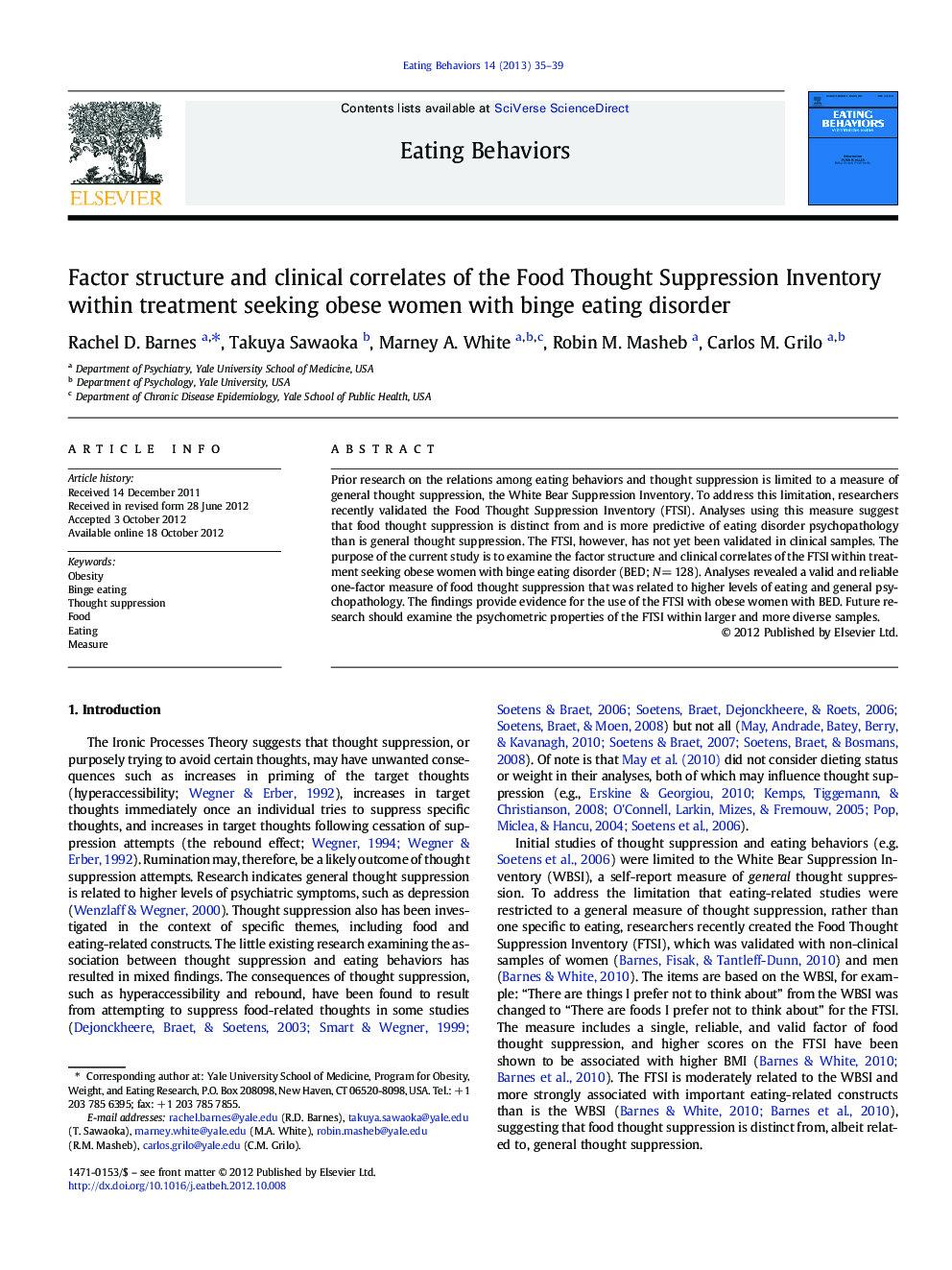| Article ID | Journal | Published Year | Pages | File Type |
|---|---|---|---|---|
| 906551 | Eating Behaviors | 2013 | 5 Pages |
Prior research on the relations among eating behaviors and thought suppression is limited to a measure of general thought suppression, the White Bear Suppression Inventory. To address this limitation, researchers recently validated the Food Thought Suppression Inventory (FTSI). Analyses using this measure suggest that food thought suppression is distinct from and is more predictive of eating disorder psychopathology than is general thought suppression. The FTSI, however, has not yet been validated in clinical samples. The purpose of the current study is to examine the factor structure and clinical correlates of the FTSI within treatment seeking obese women with binge eating disorder (BED; N = 128). Analyses revealed a valid and reliable one-factor measure of food thought suppression that was related to higher levels of eating and general psychopathology. The findings provide evidence for the use of the FTSI with obese women with BED. Future research should examine the psychometric properties of the FTSI within larger and more diverse samples.
► Analyses of the Food Thought Suppression Inventory (FTSI) resulted in one factor. ► This one factor is valid and reliable. ► FTSI was significantly associated with eating disorder psychopathology. ► FTSI predicted symptoms of eating disorders after accounting for depression levels.
